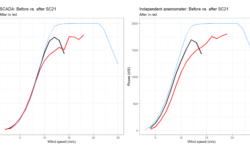Interview with Volkswagen AG after the end of ARIA project

Interview Carsten Othmer (Volkswagen AG)Within ARIA, Volkswagen AG has focused on a process known as “Interactive Aerodynamic Design.” This approach aims to speed up the iterative cycle between vehicle styling and aerodynamic assessment. The ROM methods addressed within ARIA are considered the key enablers for this process acceleration, as they…










